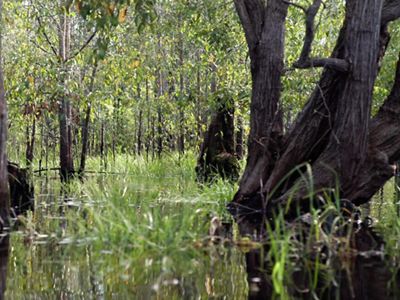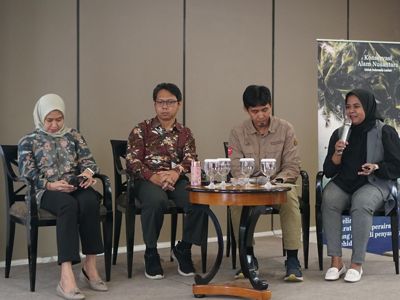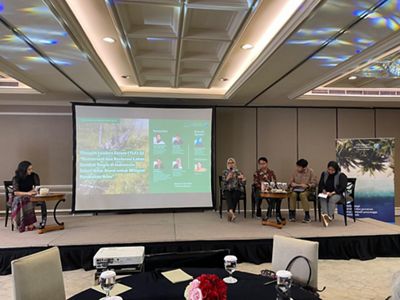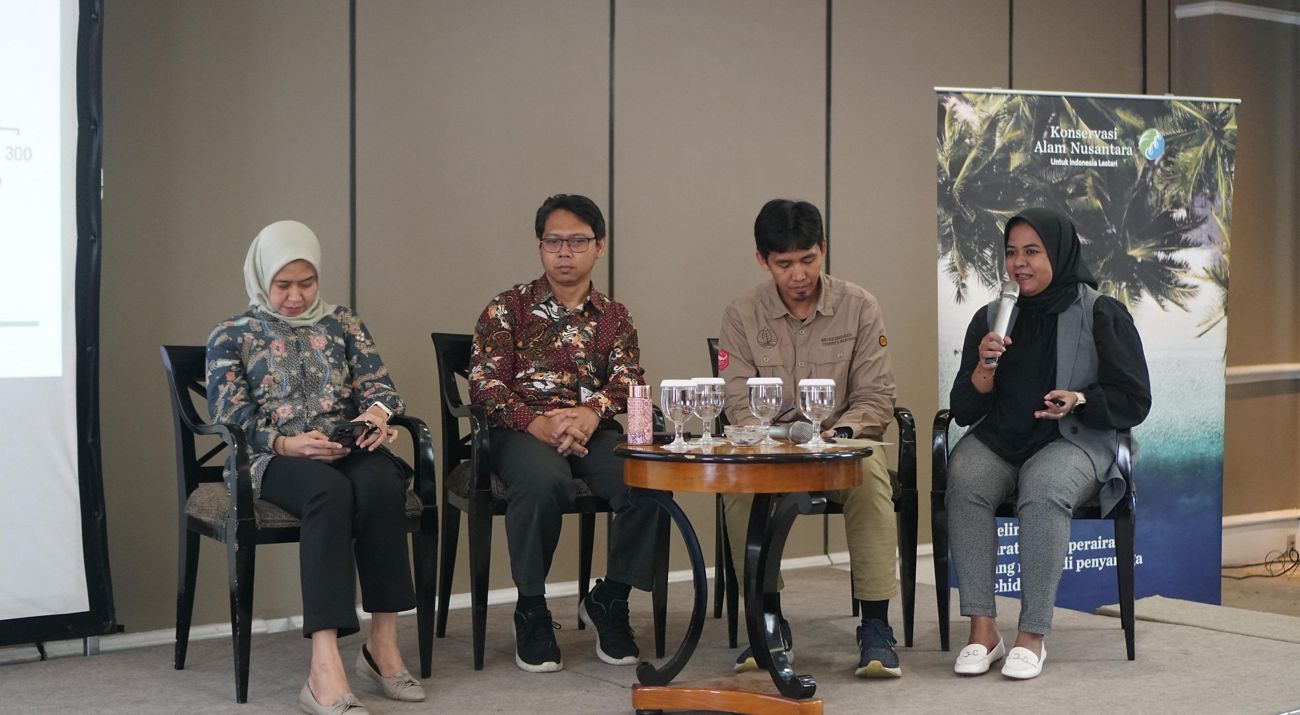Media Contacts
-
Meita Annissa
Public Communications Manager YKAN
Yayasan Konservasi Alam Nusantara
Email: meita.annissa@ykan.or.id
As a critical wetland ecosystem, peatlands hold the key to preventing environmental crises and enhancing community welfare. With a carbon storage capacity 10 to 13 times greater than other ecosystems, peatlands offer a beacon of hope in our fight against climate change. They can also be harnessed for various high-value agricultural and aquaculture practices. Therefore, peatland restoration stands as a beacon of hope, a priority in our collective efforts to achieve the Nationally Determined Contribution (NDC). The NDC represents Indonesia's commitment to reducing carbon emissions by 31.89% independently or 43.20% with international assistance by 2030.
Indonesia has approximately 13.4 million hectares of tropical peatlands, capable of storing up to 57 gigatons of carbon, or 55 percent of the world's total tropical peat carbon. However, nearly half of Indonesia's tropical peatlands have experienced functional degradation due to canal construction, deforestation, conversion to agricultural land, and fires.

Ayu Dewi Utari, Chief Secretary of the Peatland and Mangrove Restoration Agency (BRGM), emphasized that, besides rewetting and replanting as strategies for peatland restoration, BRGM places a strong focus on enhancing community welfare or livelihood revitalization. This approach is not just about restoration, but about building a shared future. BRGM recorded that by 2023, approximately 784 villages had been established in restored peatland areas, a testament to the power of community-driven restoration.
According to Ayu, with good welfare, communities will consciously and voluntarily participate in protecting their environment. "One of our programs is the Peat Care Village, aimed at changing the paradigm of peatland restoration and helping villages improve their status," said Ayu during the opening of the 32nd Thought Leaders Forum (TLF) organized by Yayasan Konservasi Alam Nusantara (YKAN) in Jakarta, Thursday, June 13, 2024, themed "Konservasi dan Restorasi Lahan Gambut Tropis di Indonesia: Solusi Iklim Alami untuk Mitigasi Perubahan Iklim."
Agus Yasin, Head of the BRGM Restoration Technical Working Group, stated that by December 2023, they had restored 51,325 hectares of peatland through rewetting, replanting, and improving community livelihoods. This restoration, which aligns with BRGM's two main tasks: facilitating peatland restoration and enhancing community welfare, underscores the crucial role of the community in this process. "We use the term facilitation, because the principle of peatland restoration is that those who manage the peatlands and cause damage must be responsible for restoring them. We facilitate this process," Agus explained.

Previously, in the FOLU Net Sink 2030, a term that refers to contributing to the NDC achievement, Indonesia set a target to reduce greenhouse gas emissions in the land sector by 17.4 percent, or 140 million tons of CO2 equivalent. FOLU Net Sink 2030 includes [specific activities], such as reforestation, afforestation, forest conservation, and sustainable land management practices that increase carbon sequestration or reduce emissions from land use, such as on peatlands.
Yanto Rochmayanto, Senior Researcher at the Directorate of Environmental Policy, Maritime Affairs, Natural Resources, and Nuclear Energy, National Research and Innovation Agency (BRIN), mentioned that peatland restoration cannot rely solely on technical aspects. He emphasized that restoration plans should first consolidate the social and economic conditions of the surrounding communities. "First, we need to understand the social and cultural aspects of the areas to be restored, then choose activities and mitigation actions related to them. Thus, restoration activities should align with natural and socio-economic contexts," Yanto explained.

Meanwhile, Nisa Novita, researcher and Senior Manager of Forestry Carbon and Climate Change at YKAN, underscored that peatland restoration is not a task for one but a collective responsibility. She also highlighted the crucial need to quantify the emission reduction impacts of rewetting and replanting activities on degraded peatlands. "Our research found that building canal blocks in inappropriate and maintained locations on palm oil plantations can reduce emissions by up to 30% compared to business as usual. This underscores the urgent need for peatland restoration through water management, an effective Natural Climate Solution with high potential for national emission reduction efforts," Nisa said, emphasizing the urgency and the need for collective action.
Yayasan Konservasi Alam Nusantara (YKAN) is a scientific-based non-profit organization that has been present in Indonesia since 2014. With the mission of protecting lands and waters as life support systems, we provide innovative solutions to realize the harmony of nature and humans through effective natural resource management, prioritizing a non-confrontational approach, and building a network of partnerships with all stakeholders for a sustainable Indonesia. For more information, visit ykan.or.id.


